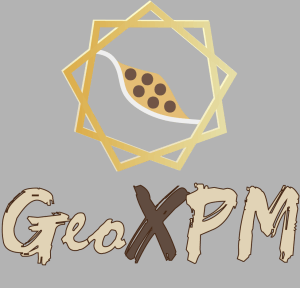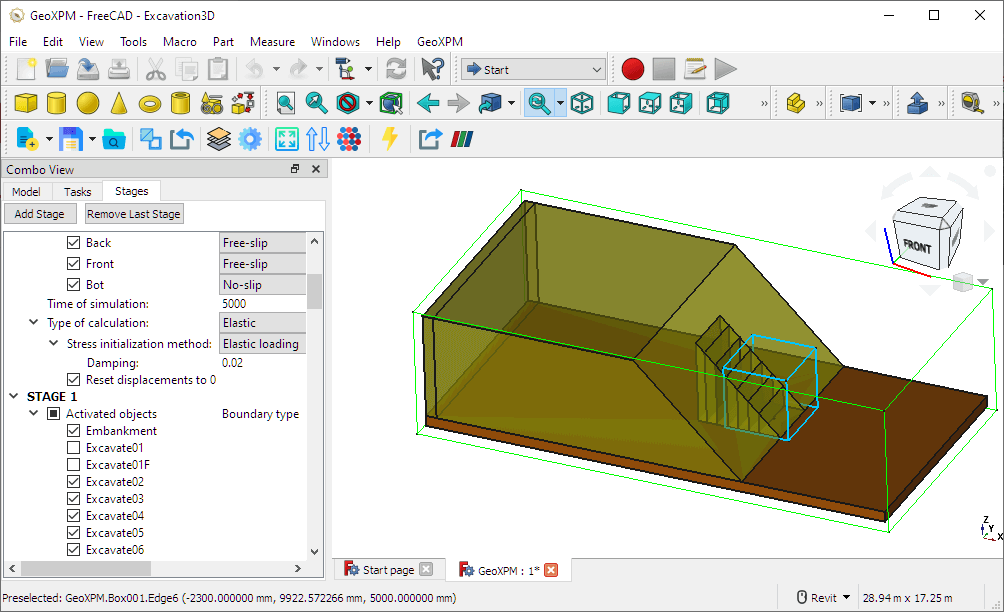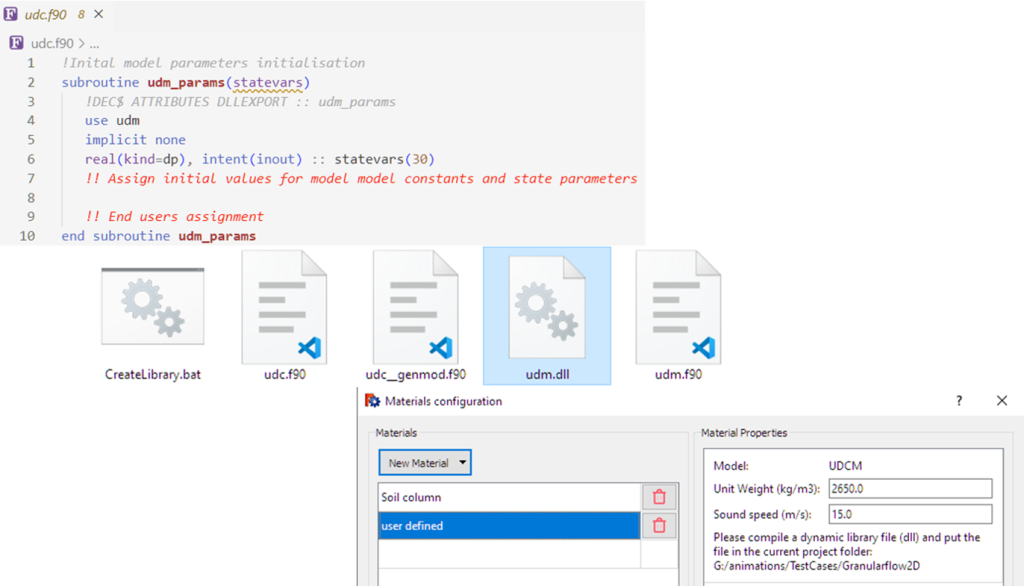
Solving extreme geotechnical problems
involving large deformations
wikipedia.org
New tutorials are coming frequently!
General User Interface Explained
In this tutorial. We will explain about:
- GeoXPM interface, including Toolbox, Menu, and Tabs
- The general workflow to solve a geotechnical problem.

2D Granular Flow
In this tutorial. We are going to simulate a simple 2D granular flow problem. You will learn how to:
- Draw primitive geometry.
- Define SPH parameters and materials.
- Define particle generate order.
- Define construction stages.
- Run simulation and visualise data.
3D Granular Flow
In this tutorial. We are going to simulate a simple 3D granular flow problem. You will learn about the differences between working in 2D (previous example) and 3D in GeoXPM.
3D Retrogressive Failure
In this tutorial. We are going to demonstrate the strength of GeoXPM through a 3D retrogressive failure of sensitive clays (or quick clays). You will learn about behaviours of soils using different constitutive models.
3D Hourglass Simulation
In this tutorial, we are going to create a simulation of granular flow in an hourglass. You will learn about:
- Working with mesh objects.
- Creating a basic rendering with path tracing.
3D Staged Excavation
In this tutorial. We are going to model an excavation process where the soil slope is slowly excavated until collapse. Through this example, you will learn about:
- Drawing and manipulating 3D objects.
- Setting up construction stages.
- Data post-processing.
3D Terrain Debris Flow
In this tutorial. We are going to conduct a large scale simulation of debris flow problem. The initial geometry will be imported from a digital elevation model. You will learn about:
- Working with real-world data.
- Resources to obtain terrain from all over the world.
- Creating animation sequences.
User-defined Constitutive Model
In this tutorial, we will explore the process of creating a custom constitutive model (material model) and incorporating it into GeoXPM for advanced simulations. It is important to note that this is an advanced topic that requires a certain level of familiarity with coding in Fortran.
- Throughout the tutorial, you will gain knowledge on Fortran templates, compiling dynamic linked libraries, and integrating your user-defined model into the GeoXPM interface.
